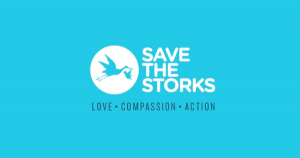Miscarriage: Letting Go of the Stigma
Miscarriage: Letting Go of the Stigma
Categories: SAVE THE STORKS
Miscarriage: Letting Go of the Stigma

October is Pregnancy and Infant Loss Awareness month. It is a time to honor the countless lives lost and heartbroken parents who lost babies too soon.
We also want to take this month to highlight a topic that is rarely talked about: miscarriage. Miscarriage is the sudden, spontaneous loss of a pregnancy before 20 weeks gestation. Research shows that as many as 10 to 15 percent of pregnancies in the first trimester ends in miscarriage (March of Dimes).
Unfortunately, there is a stigma surrounding miscarriage that often leaves women suffering in isolation after their loss. It can be hard to know how to help women grieving after a miscarriage, especially when we don’t know the full extent of their pain.
But the more we know, the better we can serve women who are grieving their babies gone too soon.
What Causes Miscarriage?
Unfortunately, there is no singular cause of miscarriage. For some women, they may never know why they miscarried in the first place. For others, miscarriage can be narrowed down to chromosomal problems, cervical or uterine problems, infections, hormone imbalance and more. No matter the cause, miscarriage can be, and often is, a very traumatic event for women and families.
What Are Common Side-Effects and After-Effects of Miscarriage?
During a miscarriage, women often experience intense? lower abdominal pain, cramping, and bleeding. It is important for women to seek medical help and consult a doctor if they are experiencing these symptoms. Doctors can run tests and do an ultrasound to check on the baby and make sure everything is ok. There are many women who experience the symptoms of a miscarriage, but do not miscarry.
It may take time for the body to heal after a miscarriage, especially depending on how long she was pregnant for. Pregnancy hormones can linger for up to two months after a miscarriage. Many women who have had a miscarriage are able to get pregnant again with healthy pregnancies with no problems.

How Does Miscarriage Affect a Woman Mentally?
As with any loss, miscarriage can lead to a deep grieving period for the mothers and families involved. Because miscarriage isn’t often talked about, women can feel isolated or alone in their grief. This isolation can lead to depression, anxiety, PTSD, or other mental health struggles.
Many women who have struggled with miscarriage continue to struggle mentally for many months, or years, after her miscarriage. These mental struggles may even continue after the birth of a healthy baby, which can sometimes lead to difficulties bonding with future children (American Psychological Association).
What Can We Do to Support Women Who Have Had a Miscarriage?
Women who have gone through a miscarriage need people to talk to. Knowing that they have a support system around them where they can share their story and express their hurt often helps women cope with their loss (Family Education).
Every women experiences trauma and grief in a different way. One of the most important things women need to remember after the loss of a pregnancy is that they are not alone. It is important to speak up-–whether to family and friends or a counselor.
Just because it is “common” doesn’t mean it is easy. Losing a child is heartbreaking and traumatic. If you or someone you know has been through the heartbreak of a miscarriage or early infant loss, you are not alone. To find a counselor near you, click here.

Save the Storks partners with over 60 pregnancy centers nationwide with nearly 60 mobile medical units operating around the country. In 2019, affiliate pregnancy centers reported over 2,100 positive pregnancy tests and over 1,800 choices for life aboard their mobile medical units.
To help find counseling resources near you, visit https://www.aacc.net/
To read stories of women who have found healing after an abortion, click here.
For crisis pregnancy resources near you, click here.
